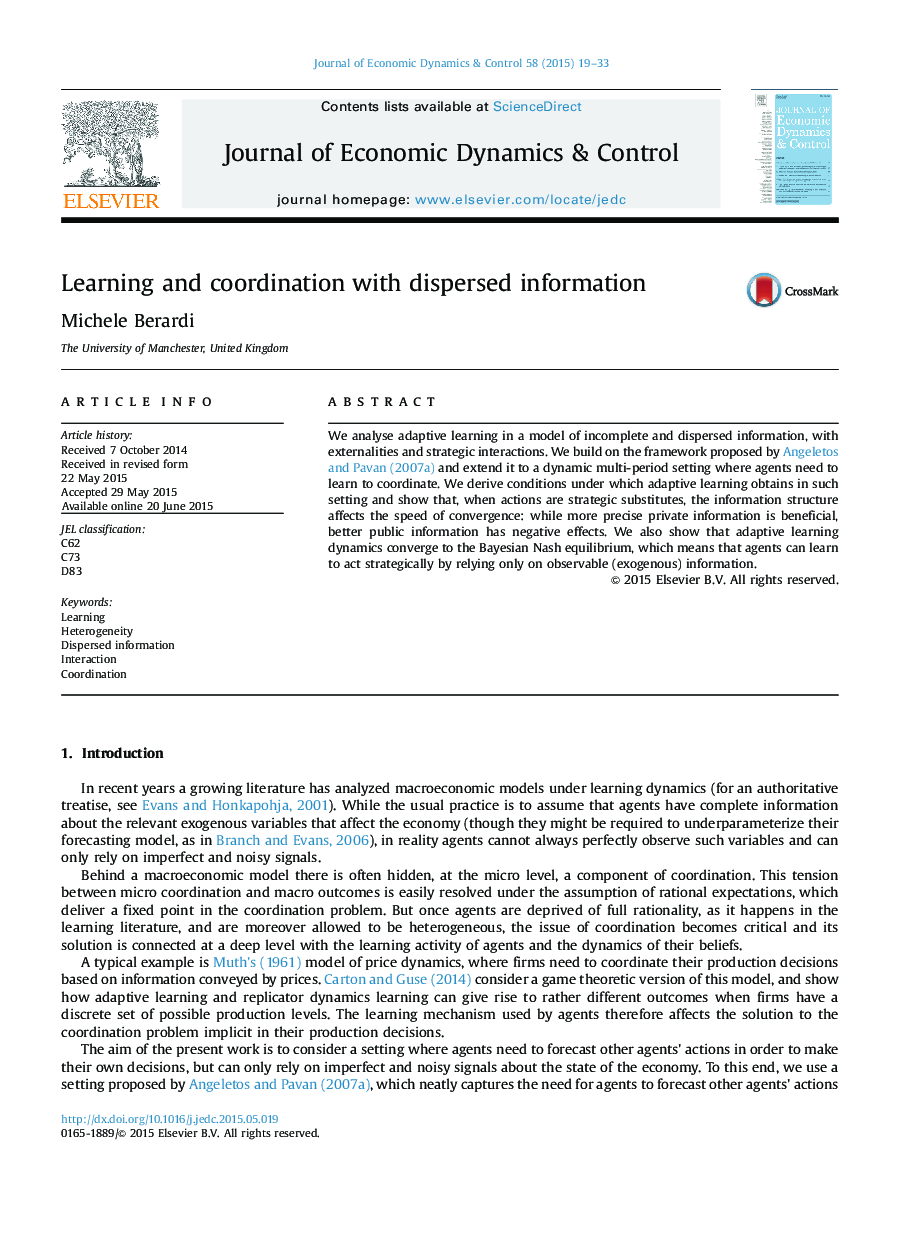| Article ID | Journal | Published Year | Pages | File Type |
|---|---|---|---|---|
| 5098276 | Journal of Economic Dynamics and Control | 2015 | 15 Pages |
Abstract
We analyse adaptive learning in a model of incomplete and dispersed information, with externalities and strategic interactions. We build on the framework proposed by Angeletos and Pavan (2007a) and extend it to a dynamic multi-period setting where agents need to learn to coordinate. We derive conditions under which adaptive learning obtains in such setting and show that, when actions are strategic substitutes, the information structure affects the speed of convergence: while more precise private information is beneficial, better public information has negative effects. We also show that adaptive learning dynamics converge to the Bayesian Nash equilibrium, which means that agents can learn to act strategically by relying only on observable (exogenous) information.
Related Topics
Physical Sciences and Engineering
Mathematics
Control and Optimization
Authors
Michele Berardi,
